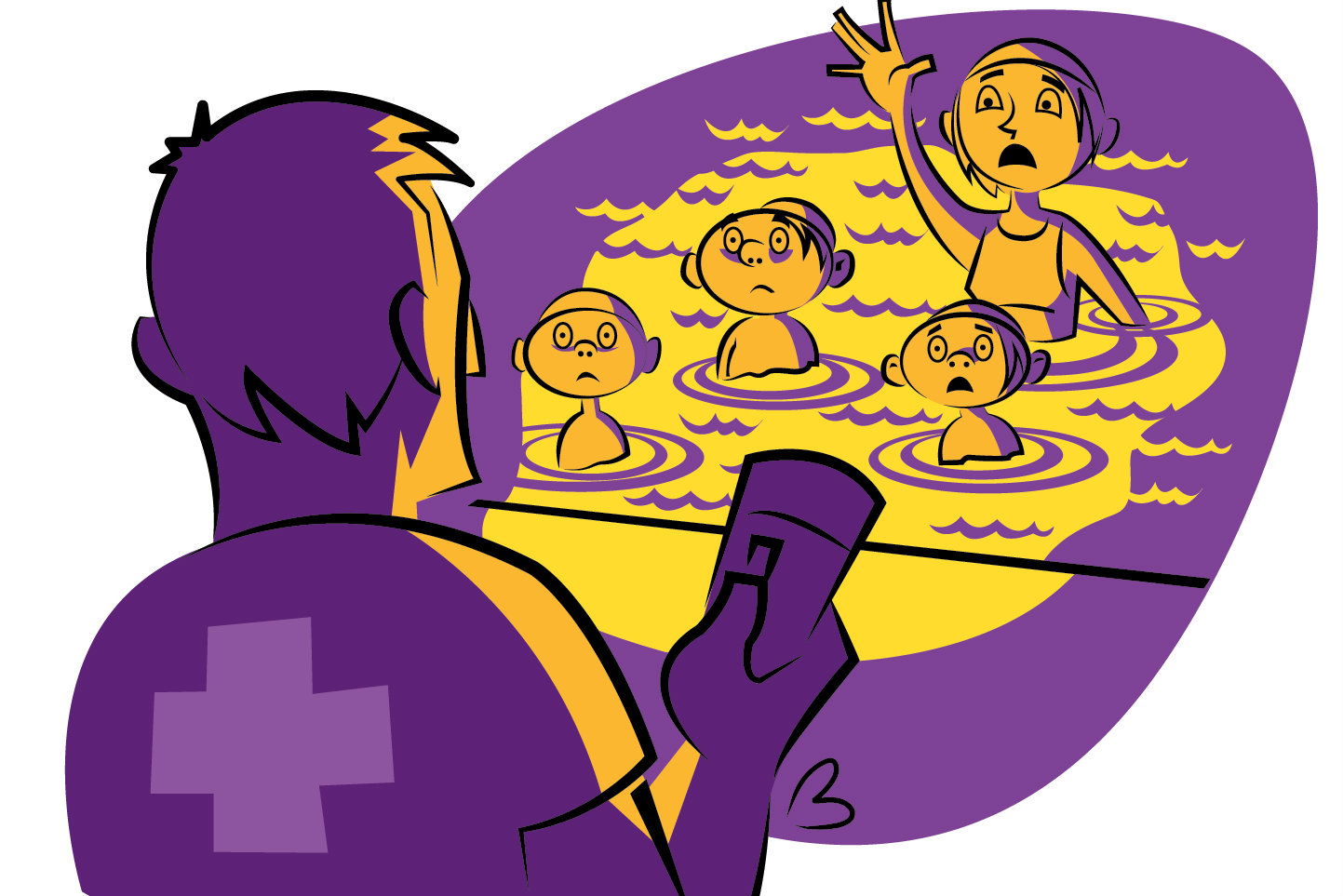Super Bowl XLVII went down in history as the day the lights went out at the Superdome. Most people could not tell you that the Ravens beat the 49ers by 3 points, or that the game included the longest kickoff return in Super Bowl history and that Beyoncé performed at halftime. They do remember this was the game where the power went out and play was stopped for 34 minutes and international television was interrupted, earning the nickname of the Blackout Bowl.
While most aquatics professionals work hard at preparing their staffs to handle a wide range of emergencies and situations, things often come up that are out of their direct control. I know about that firsthand.
It was one of the busiest days of the season, one of those mid-July Saturdays that pools were built for. The weather was great, so the waterpark was packed; there was a large age group swim meet in the 50-meter pool; all the cabanas were booked; and swim lessons and a company picnic were in full swing. It was one of those days when there is not an inch of unused water anywhere and you did not think that was humanly possible to go through that many rolls of toilet paper.
Everything was just humming along — and then the power went out. Every lifeguard, swim-meet official and parent was informing you, just in case you didn’t notice. Suddenly you were trying to identify the problem, contact the correct people, answer endless questions about what will happen now, and handle the call from the councilman who seems to have a direct line to you on these issues.
The power outage at Splash! lasted about an hour, caused by a tripped safety feature. It had nothing to do with what was going on at the time. While the swim team felt like the world would stop spinning because their timeline was delayed by one hour, the birthday party moms felt as if we’d scarred their child for life, and swim lesson parents wanted to know if there was a make-up. Nevertheless, everyone did survive.
Even though we all can “Monday morning quarterback,” it’s important to celebrate coming through the experience together. Often incidents can help bring a staff closer together, but also can damage staff togetherness if we start to play the blame game. Look forward to improve instead of would have, could have, and should have. Coming through something often can make us better.
THE LESSONS
- Breathe, delegate, communicate. Many things may need to happen all at once, including pool evacuation, identifying the problem source, contacting the correct people and answering many questions. Take a moment to delegate tasks and put the best people, or the best you have, in charge of specific areas and designate a chain of command.
- Plan ahead. Create a contact list; keep it current and accessible to all who will need it. Each incident will have its own unique details, but working through some what-if scenarios will help your staff be better prepared when things happen — and they will happen.
- Debrief after each major incident. Review things that could’ve been done differently. Also, we’ve created “crash kits” for certain situations: One box has flash lights and lanterns for use in locker rooms because even with emergency lighting some areas are dark; we have another kit for when the computers go down and front counter and food operation transactions must be processed by hand.




